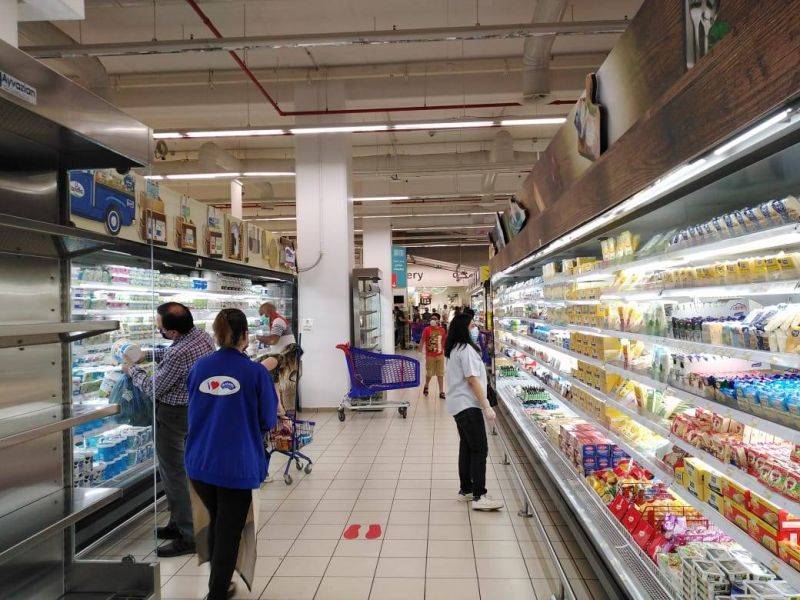
In April, the cost of food and non-alcoholic beverages rose by 229 percent year-over-year. (Credit: Céline Abboud)
BEIRUT — In April, for a 10th consecutive month, the Central Administration of Statistics registered year-over-year inflation in triple-digit figures.
The consumer price index, which provides inflation figures by measuring the change in prices of a basket of goods and services over a period of time, was 121.66 percent higher in April 2021 than in April 2020, while the percentage rise in prices in several specific product sectors was even greater.
The cost of furnishings, household equipment and routine household maintenance was six times higher, soaring by 501 percent, in April 2021 compared to the same month a year earlier, the government agency reported. This increase comes as owners of houses and businesses damaged by the Aug. 4 Beirut port explosion continue to make repairs to their properties.
Meanwhile, clothing and footwear were 337 percent more expensive than in April 2020, the CAS report states, while the cost of food and non-alcoholic beverages rose by 229 percent, and prices on alcoholic beverages and tobacco increased by 232 percent.
The report records transportation expenses as rising by about 239 percent, and restaurant and hotel prices as increasing by 401 percent.
By comparison, inflation for the period April 2019 to April 2020 stood at 47 percent, while in the year prior, before the onset of the financial crisis in mid-2019, it was just 4 percent.
The Lebanese lira’s plummet in value has played a direct role in driving inflation. The national currency has lost about 88 percent of its value since it began deviating from the official peg of LL1,507.5 to the dollar almost two years ago. During April, the lira traded at an average price of LL12,500 to the dollar on the parallel market.
Banque du Liban provides dollar facilities at the official peg to cover imports of wheat, fuel and medicine. These facilities have curtailed inflation on health care expenses, which are mostly still priced at the official exchange rate; however, such costs nonetheless rose by 26 percent year-over-year in April.
How long BDL will be able to continue subsidizing basic imports remains unclear. Caretaker Finance Minister Ghazi Wazni warned last month that the country may run out of money to keep the subsidy system going by the end of this month, since BDL’s dwindling foreign currency reserves have reached a critical level. The minister has since made no further public comment on the matter.
Even with subsidies still in place, the cost of domestic water supply, electricity, gas and other fuels rose by 83 percent. This is due both to the increase in global fuel prices over the past year and the central bank’s provision of subsidized dollars for just 90 percent of the cost of fuel imports. The remaining 10 percent of the funds needed to secure fuel, which is needed to run private generators and vehicles, must be acquired through money changers at the parallel market exchange rate, which has an outsized effect on the price of related commodities.
At the other end of the inflation spectrum, CAS records just a 10 percent increase in education fees year-over-year in April. Most schools and universities still charge their students at the official exchange rate.
Aiming to stabilize the lira rate and curb inflation, BDL will start injecting dollars into commercial banks on Thursday through Sayrafa, the central bank’s new currency exchange platform.